“Grab & Go” or “Go Slow”
In true 21st century style, we are all tempted to do a “grab & go” run on our favourite paid genealogy site. Each site regularly brings new records online and more and more people join the sites. Then there’s all those trees to trawl for common relatives or ancestors. Certainly, this strategy can quickly add branches and information to our trees. However, do we stop and reflect on what we’re seeing and whether it’s substantiated by solid records? This tree-snob has had to modify her disregard for trees, as I’ve recently been finding great primary source information in the gallery section of some trees. It also offers the opportunity to connect directly with family members who may know more than we do.
So far, so good. But I’d like you to consider another string to your research bow, either online, or especially offline. There’s still so much out there to be learned. Let me give you some examples of how you can “Go Slow”.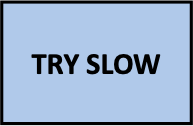 Family History Societies
Family History Societies
Chances are if you’re reading this GSQ blog, you’re already a society member. How familiar are you with the resources held in the society library? They may not all be on the computers you’re using, or perhaps not where you’re looking. Do you ask others for potential places to search? Some of my best clues were eavesdropping on conversations back in the day.
Webinars and Classes
Do you attend society webinars or classes? Even though I’ve been researching for decades and know a fair bit about some topics, there’s always something to learn, even if it’s a light-bulb moment about how else to approach the topic.
The boom of Zoom during covid has continued to offer us opportunities to attend single sessions across the world, or even conferences focused on a particular topic. Yes, our exchange rate can make us think twice, but irrespective of cost, it’s cheaper than a long-haul flight and accommodation if it focuses on a particular interest of yours. (RootsTech is only one example.)
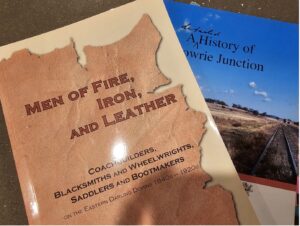
Family history reference books. From author’s personal collection.
Some suggestions: Legacy Family Tree Webinars or the Scottish Indexes Conferences that occur regularly. Both give you lots of learning for your dollar. (Don’t forget to donate to Scottish Indexes if you attend). The next conference is on 7 September 2024.
Libraries, Reference books and Photographs
I wonder whether we maximise our opportunities to learn about our families’ lives from the many reference books on library shelves. Have you explored just what’s on your society’s bookshelves?
When did you last visit your state’s reference library? The State Library of Queensland (SLQ) is the legal deposit repository for books published in Queensland and will also hold books relating to interstate or overseas. Yes, it’s a challenge if you’re beyond the South-East axis, but I know I was far more organized when I lived in Darwin and could only visit periodically. I would keep a running tally of which books to search when next in Brisbane. These days I’m far more disorganised about it, even though (because?) I’m closer.
Perhaps you have a friend who’d be willing to look up something for you or you could “ask a librarian”.
John Oxley Library holds a wide range of books, photographs and materials about Queensland. Have you searched the SLQ catalogue to see what may be held throughout the library?
Over the years I’ve collected key reference books that I use regularly or when I’m researching a particular topic or branch of my research interests. I prefer these books to be in paperback or hardback rather than e-books but sometimes the e-book just makes sense to avoid the difficulty and cost of international delivery.
Libraries and societies in your region of interest can be incredibly helpful, including local historians if you can identify them. They know their backyard intimately and can help clarify locations or events. I’ve recently been re-reading some reference books I hold from the Toowoomba and Darling Downs Family History Society. They focus on particular aspects of the regional history and have also clarified places in a way that repeated visits to the area haven’t achieved. Local histories can be gold!
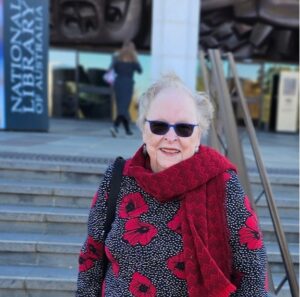
In my happy place – the National Library of Australia. Photo by Peter Cass, July 2023.
Don’t forget you can get a free library card from the National Library of Australia (NLA) which will let you search British Newspapers online and also read relevant journal articles from JSTOR. You can also search their maps and photographs. As wonderful as Trove is, there’s more at NLA we can benefit from, e.g. I found an oral history by a distant relative, talking about shearing.
Microfiche and Microfilm
Newer researchers may have been saved the joy of this quintessential “go slow” activity. Yes, some societies have had their indexes uploaded to pay-to-view sites but there is still information lurking in these offline records. Just last week at GSQ I was able use a microfiche to identify the baptism of someone connected to my Dorfprozelten immigrants. Inevitably, I didn’t find the ones I was hoping for, but you take the wins you get. It brought home to me just how hard on the eyes this activity was (may explain my early need for glasses?). SLQ also has microfilms that you may not find online, e.g. some from the Society of Australian Genealogists or perhaps small runs of regional newspapers not yet on Trove.
Archives: National, State or Church
Queensland State Archives have now digitized many of the regularly used records. This makes those documents readily available online but also preserves the items from further deterioration. I confess I have a longing for the old drawers of cards which tipped you off on where you might also look. I’m sure the same information is there in the ArchivesSearch catalogue but you may struggle to find it if you don’t hit upon the necessary search query. They do have online indexes which can be downloaded. It’s worth doing this to go slowly through names which may have been misspelt especially if you have an “ethnic” name. Check out their guides as well.
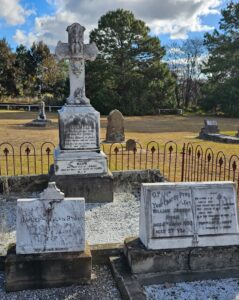
Uralla cemetery. Graves of John Ryan and family. From author’s personal collection.
I’m a massive fan of church archives because they have solved key problems for me, like the place where my George Kunkel was born – only found in one lot of parish registers, which I learned about from a GSQ expert back in the day. You will find that some are more welcoming and open than others, but it’s still worth a try. Remember your genealogy is not their core business, so do make a donation while you’re there – whether you find something or not. These archives will be usually found by Diocese so you will need to check where your family’s parish fitted in.
Don’t forget that if you have pre-Separation pioneers in your family, you should also check what’s available at the NSW State Archives Collection.
Cemeteries and town visits
These are the fun “go slow” activities. A chance to see where your ancestors were buried, gravestone or not. There’s something so very special about walking the land where your ancestors lived or the churches where they worshipped. If you can’t get there in person, try looking there on Google Earth or see if the regional library may have photos.
In conclusion
Finally, I wish you well with your “go slow’ activities and if you’re at a loss at what else to do, why not review your research to date and check the accuracy, your assumptions, and, as the London tube says “mind the gaps”.
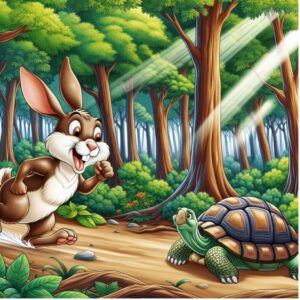
Tortoise and hare race. Acknowledging: https://easy-peasy.ai/ai-image-generator/images/prideful-hare-mocks-tortoise-forest-speed-race-scene

Slow is good! As a change from looking for direct ancestors I make little projects about more distant relatives… cousins and grand aunts .. who died young. It’s fascinating as they are not really remembered by anyone. One of my great grand aunts who died at 22 from TB won a prize for an embroidered petticoat.
Apart from her birth and death certs, a line on a census form, it’s the only other mention of her life. We cannot locate the family burial location.
I like that idea Angela. Wonderful to remember family members who didn’t have children or died young, so that they are remembered.
Sage advice – will be sharing this widely in the hope readers will”Go slow” and absorb it.
Thanks Jill. I think a “go slow” approach can definitely benefit our research.
A thought provoking read, thank you Pauleen. I guess I need a trip to browse the bookshelves at GSQ.
Thanks Kerry. Sadly, I think many of us maybe guilty of ignoring the treasures on society bookshelves.
a great reminder Pauline, thank you and so much good advice. I haven’t visited the Qld State Archives yet should, and visited the NLA once which I loved.
In reply to Christine Leonard.
The archives offer so much interesting information beyond what has been digitised. It does take some effort to “learn the ropes” but reading their guides help. Happy searching!
Thank you, Pauleen, for this reminder to look beyond the subscription and free sites online. This blog is worth bookmarking to return to when we feel there is nowhere else to go when we hit those brick walls. You have provided a wonderful selection of alternative places to look, and several of those might encourage us to step away from the computer and visit a different repository.
Thanks so much Ross. There is a wealth of information just waiting for us “out there”.